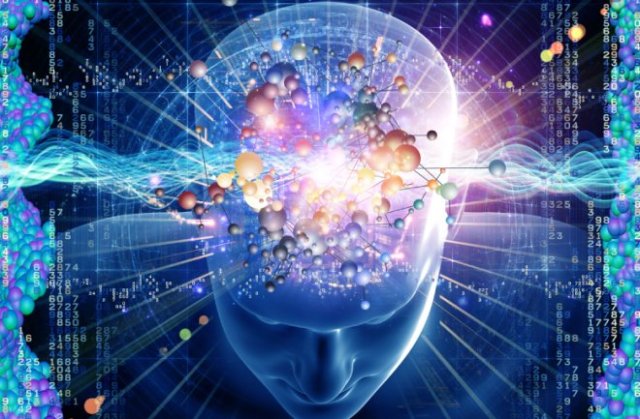“Reality is wrong, dreams are for real” or so said Tupac Shakur. Before I even begin with the whole scientific logic behind dreaming( if there is any), I would first like to clarify what dreams actually mean. Dreams are basically the ‘imaginary’ events seen in our mind while sleeping. Going over a number of definitions of dreams, I noticed that the most often used word for it’s description is ‘imaginary’. This makes me wonder, are dreams really all imaginary? If yes, then how does one explain precognitive dreams that some claim to be the reason behind deja vu. Deja vu as we all know is real, isn’t it? So, how is it possible that a real phenomenon is occuring due to an imaginary stuff?And this itself tells us, how confusing and contradicting the entire concept of dream is.

PC- whisperfall.deviantart.com
Over many years dreams have been a constant topic of debate among the philosophers but now they have also grabbed some scientists’ eyes and hence a number of new scientific research over them. The basic question that still baffles the scientists is do dreams have any purpose at all? While many argue that dreams are purposeless, some claim that dreams are absolutely essential for mental peace. Ernest Hoffman, director of Sleep Disorders Centre at Boston, says “…a possible (though certainly not proven) function of a dream to be weaving new material into the memory system in a way that both reduces emotional arousal and is adaptive in helping us cope with further trauma or stressful events.”
The most accepted fact about dreams is that they rewind whatever our eyes see in our waking hours. Our brain registers a lot more than we think we notice. From the tiniest details like maybe a person passing by on the road to a coming up test, the brain rewinds almost everything in our head while we’re asleep. Dreams are also said to help form memories. Of course you might have heard an elder tell you to get some proper sleep after reading a new chapter because sleep helps you retain it. Well, according to some researchers, it is the dreams playing their roles here.
During day time, there are a lot of things that come up to our mind but we put them aside and focus only on the thing right in front of us. Dreams however slow everything down for us. It helps form emotions. When you give an exam and you think you are going to fail, you will probably end up seeing yourself in the middle of the ocean helpless or maybe as a victim in a horror movie. The scientific researchers have also talked about dreams slowing things for us. You might have noticed how you watch a three-hour movie in your one-hour sleep!
There are quite a few modern theories that explain dreams and the possible causes of it. The two most important ones are-
Psychoanalytic theory of dreams :
Proposed by Sigmund Freud, this theory claims that dreams are the manifestation of one’s repressed or unconscious desires. Mostly he has talked about how dreams express our aggressive and sexual instincts that are otherwise repressed during our conscious hours. To explain his theory, he further divided the human psyche into three parts-
. Id– These are based on compulsions. We tend to act only to satisfy ourselves, without considering the consequences. Babies are born only with Id.
. Ego – Unlike it’s meaning in the normal terms, ego as defined by Freud is the part of psyche that develops in the growing toddlers. Ego makes them understand that one cannot act impulsively without considering the next needs of others.
. Super-ego – This is the fully developed human psyche that helps one to understand the difference between right and wrong. However, the decisions are still mostly taken by ego.
Using this concept, Freud says that while we’re awake, we have little or absolutely no consciousness about Id, which is basically what guides our decision. Hence during sleep, we slowly drift away from the ego part of our psyche and let Id guide us.
Activation-synthesis model of dreams:
Proposed by John Allan Hopson, this theory claims that the origin and occurance of dreams is based on the neurochemicals and electrical impulses of our brain. Hopson says that the circuits in the brain get activated during sleep. This causes the part of the brain concerned with emotions, sensations and memories to become active. The brain then tries to make sense of the random neurons bombarded by the brainstem by forming the dreams. Hence, the random and totally illogical dreams like visiting Taj Mahal in Paris or like running in the middle of a desert chasing a running pizza. Even though this theory probably means to say that dreams are actually entirely occurances due to internally created distubances, Hobson still maintains that it does not imply that dreams are meaningless. He says, “…our most creative conscious state, one in which the chaotic, spontaneous recombination of cognitive elements produces novel configurations of information: new ideas. While many or even most of these ideas may be nonsensical, if even a few of its fanciful products are truly useful, our dream time will not have been wasted.”
Some other theories of dreams are-
. Like, maybe we hear a music which we didn’t think of much when we actually heard it but which might get incorporated in our dreams.
. Dreams are a mechanism to clean our mind of junk files like it happens in our computer or mobile memory drives.
. Another theory claims dreams are the safe haven of our deepest and most personal emotions. We tend to think over it and give it some fine time through dreams.
So why do we dream?
-To clean our memories?
-To cope up with the pressure?
-To give sense to the senseless?
-To organize the brain?
-To find mental peace?
Why do we dream, no one really knows. Dreams have in history been used to predict diseases by the Shamans or to predict the future, like by the Egyptians. However, no one has really ever been able to give an exact reason or purpose of dreaming. Even after all the thoughts and research, dreams are nothing but a mystery to the very mind where they exist. Like Edgar Allan Poe said, “ All that we see or seem is but a dream within a dream”.






































